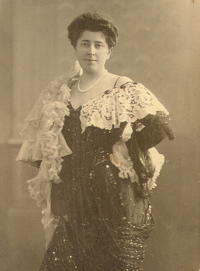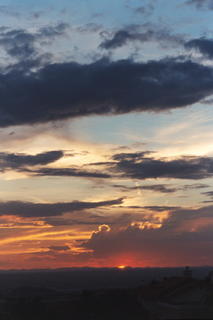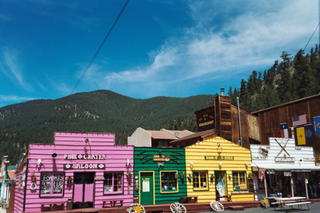
DANCING WITH THE DEAD
Here are some reflections sparked by
What Now's impending trip to interview a
living author for a project.
I think one of the reasons I was drawn to nineteenth-century studies was because I found the theoretical back-and-forth in contemporary literary studies to be too exhausting for my taste. I always felt like I had to elbow twelve theories out of the way to get to what I might want to say. Moreover, in my area, contemporary studies is always intertwined with travel and current events, and I simply could not afford to be jetting off to exotic locales to "stay current." I wasn't comfortable acting like a foreign correspondent and tracking down a bunch of native informants to make me feel authorized to have half a clue. I didn't want to spend every waking hour feeling like I had to be somewhere else, out of the country, to stay current. Don't get me wrong-- I did this for a few years, and got by. But it was too expensive. Too exhausting. Too uncertain. I always felt like I was behind. I guess I'm not cut out for that kind of scholarship anymore.
But as challenging as nineteenth-century studies are, I find that they are much less of a moving target. Everyone I'm dealing with is DEAD! In a manner of speaking, the playing field is more level. I can work from home through a variety of
astonishing full-text on-line databases, interlibrary loan and less frequent trips to archives out of the country (which has helped my finances). Because nineteenth-century studies demands a historicist sensibility, no matter how theoretical you may want to be, I found that with determination, and patience, I could reconstruct the landscapes of the past and arrive at some level of expertise that would authorize my voice as a scholar. I also felt like I could grow, become knowledgeable in something. Before, in Contemporary Studies, I always felt like there was no common ground, just dueling theories firing away at each other.
But there's something else that drew me to nineteenth century studies. It's the same thing that drives my love of collecting nineteenth-century photographs: reviving, if only fleetingly, the dead. Taking their vestiges and trying to arrive at some understanding of their world and their lives. I'm as wary as anyone here about essentialism in scholarship but there is great pleasure in experiencing a kind of insight into the past that allows you to feel it as something real, and not as something distant and expired. That experience informs my scholarship and gives it life, even as I remain critical in what I put down on paper. In other words, I am talking about flashes of insight that you may not be able to quantify in your scholarship but which feel more...dare I write this damn word? But which feel more
transcendent. (Ok, so shoot me for saying it.)
Like I said in my comment to What Now, I work on dead authors because they won't show up to conferences to tell me I'm full of crap. Or because people who have talked to them in person will not be able to stand up and tell me I'm full of crap. But I also dance with the dead because I treasure the intimacy of defeating death and time, if only for a fleeting moment, poring over an old newspaper or an old diary. An illusion perhaps, but a beautiful one worth making your life's work.
(Photo: Detail from a nineteenth-century cabinet card of Camicao's Polish Great Great Grandmother. I think her name was Magdalena Szampanier.)




